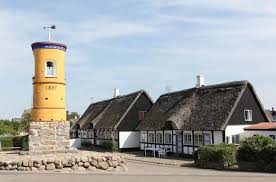
Sustainability
Introduction
Sustainability is an increasingly important topic globally, especially as the effects of climate change and the depletion of natural resources become more evident. Small communities play a fundamental role in promoting sustainable practices that help protect the planet and build a better future for all.
In this article, we will explore how local communities can act as active agents of change, showcasing examples, initiatives, and practical ideas that encourage sustainability in all its dimensions: environmental, social, and economic.
What Is Sustainability and Why Is It Important?
Definition of Sustainability
Sustainability refers to meeting the needs of the present without compromising the ability of future generations to meet theirs. It involves balancing economic development, environmental protection, and social well-being.
Why Sustainability Matters
Sustainability is essential because:
- Natural resources are being depleted at an alarming rate.
- Pollution and deforestation are accelerating climate change.
- Population growth is increasing pressure on cities and ecosystems.
Small communities, being closer to local resources and directly dependent on them, are well-positioned to implement practices that reduce environmental impact and encourage conscious consumption.

Why Are Small Communities Key to Promoting Sustainability?
Small communities possess unique characteristics that make them more agile and effective in promoting sustainability:
1. Ease of Implementation
In small communities, communication is more straightforward, and sustainable projects can be implemented more quickly. Decision-making processes are often faster due to smaller populations and fewer bureaucratic hurdles.
For example, a community with 1,000 residents can organize a recycling program or community garden much more effectively than a larger city where coordination is complex.
2. Stronger Sense of Connection
In smaller communities, there is often a stronger sense of belonging and shared responsibility. People know each other, making collaboration and joint action easier. This social cohesion fosters collective efforts towards common goals, like reducing waste or protecting local green spaces.
3. Impact on Local Resources
Small communities are closely tied to their natural resources—be it water, forests, or agricultural land. Their direct dependence creates an incentive to preserve and sustainably manage these resources for long-term benefits.
For example, communities that rely on fishing or farming are often the first to feel the effects of resource depletion, encouraging them to adopt sustainable practices.
4. Grassroots Innovation
Small communities are often hubs of creativity and innovation, where residents develop local solutions to global problems. Whether through renewable energy projects, waste reduction, or local food systems, these communities can create impactful changes that serve as models for others.
Key Sustainable Practices Adopted by Small Communities
1. Local Food Production and Consumption
Promoting local agriculture is one of the most effective ways to achieve sustainability. Small communities often rely on local farmers and markets, which helps:
- Reduce carbon emissions associated with transporting food over long distances.
- Support local economies and livelihoods.
- Encourage healthier, seasonal diets.
Example: Community-supported agriculture (CSA) programs allow residents to buy directly from farmers, reducing waste and ensuring fresh, sustainable produce.
2. Renewable Energy Initiatives

Many small communities are adopting renewable energy sources like solar, wind, and hydropower to reduce their dependence on fossil fuels. Investing in local renewable energy projects benefits both the environment and the economy.
Example: Towns in Europe and North America have become “carbon-neutral” by producing their own energy through community-owned solar panels or wind farms.
3. Waste Reduction Programs
Small communities are often pioneers in waste reduction efforts, such as:
- Recycling programs.
- Composting organic waste.
- Banning single-use plastics.
Example: Several towns worldwide have implemented “zero waste” goals, encouraging residents to minimize landfill waste through education and community initiatives.
4. Community Gardens and Green Spaces
Urban and rural small communities are creating community gardens and protecting green spaces to:
- Improve local air quality.
- Promote biodiversity and ecosystem health.
- Foster social interaction and community pride.
Community gardens provide fresh, organic food while teaching sustainable practices like composting and water conservation.
5. Education and Awareness Campaigns
Sustainability starts with awareness. Small communities often organize workshops, schools, and events to educate residents about sustainable living.
Examples include:
- Workshops on reducing energy use.
- Classes on growing organic vegetables.
- Awareness campaigns on the importance of recycling.
Education empowers individuals to make sustainable choices in their everyday lives.
6. Water Management
Managing water resources efficiently is critical, especially in areas facing droughts or water scarcity. Small communities often lead the way with initiatives like:
- Rainwater harvesting systems.
- Water-efficient irrigation methods for agriculture.
- Restoring local rivers and wetlands.
Example: Villages in India and Africa have implemented innovative rainwater collection methods, ensuring water availability for farming and daily use.
Examples of Successful Small Community Sustainability Projects
1. Samsø Island, Denmark
become self-sufficient by reducing reliance on fossil fuels. Projects include community gardens, local currencies, and renewable energy initiatives.
Samsø, a small island in Denmark, is a global leader in sustainability. In just 10 years, the island achieved 100% renewable energy through community-owned wind farms and solar panels. This project reduced their carbon footprint significantly while boosting the local economy.

2. Totnes, England – Transition Town Movement
The Transition Town movement began in Totnes, England, encouraging residents to
3. Güssing, Austria
Güssing, a small town in Austria, transformed itself into an energy-independent community by investing in biomass energy. This initiative created jobs, attracted businesses, and eliminated reliance on imported energy.
How to Promote Sustainability in Your Local Community
1. Start Small but Think Big
Small actions like organizing clean-up events, creating a composting program, or planting trees can have a significant impact over time.
2. Engage the Community
Raise awareness and get local residents involved through educational workshops, social media campaigns, and community events.
3. Support Local Businesses
Encourage the consumption of local products and services to reduce environmental impact and strengthen the economy.
4. Collaborate with Local Authorities
Partnering with local governments can help secure funding, implement policies, and scale sustainable projects.
5. Invest in Renewable Energy
Explore options for solar panels, wind turbines, or other renewable energy sources to power homes, businesses, and public buildings.

Conclusion
Small communities have the potential to drive significant change in promoting sustainability. Their close-knit nature, reliance on local resources, and ability to implement grassroots initiatives make them ideal leaders in adopting sustainable practices. From local food systems to renewable energy and waste reduction, small communities are proving that collective action can pave the way for a greener, more sustainable future.
As individuals, we can learn from these communities and take steps to promote sustainability in our own lives. Together, small efforts can lead to massive positive change for the environment, society, and economy.
By embracing sustainable living, small communities are not only securing their future but also setting an inspiring example for the rest of the world.
The Role of Small Communities in Promoting Sustainability https://youtu.be/FmJxUsXWajo?si=HPPvL5MOb_O6vFDA, The Green Economy and the Transition to a Sustainable Future




Pingback: Health and Sustainability - VarietyWeb